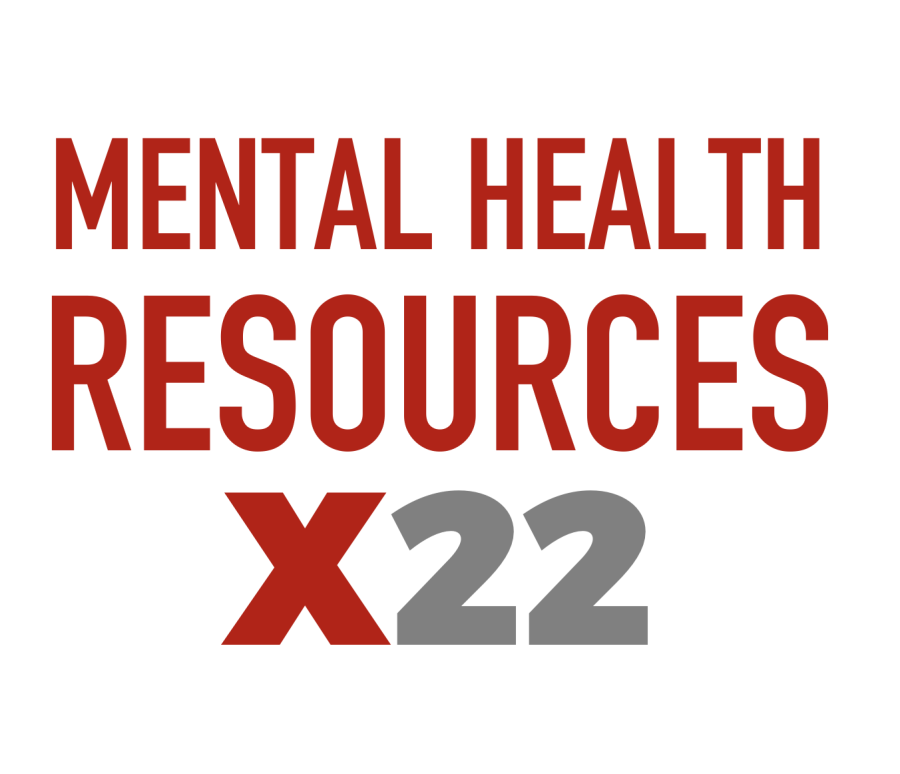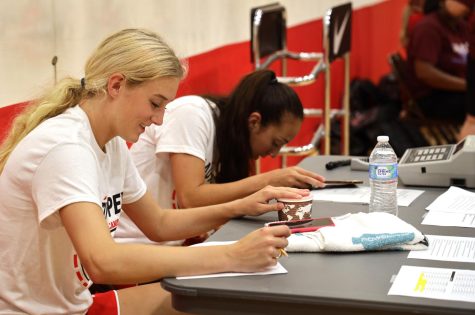How to get help
More than 2.5 million teenagers in the United States are experiencing severe depression with 60% not receiving any form of treatment. In Kentucky alone, roughly 31,000 youth experienced severe major depressive episodes.
Vestena Robbins, a senior executive advisor for the Kentucky Department for Behavioral Health, Developmental and Intellectual Disabilities said the mental health of children hasn’t been a real priority for years.
“We have had very little attention given to children’s mental health,” she said.
Robbins and her team work to create innovative policies and programs for youth experiencing mental health issues. They work with primarily transition age youth (ages 14-26). Robbins said this group in particular was an age group they weren’t doing a great job in taking care of.
“They didn’t have very good behavioral health over life outcomes in general,” Robbins said. “They had higher suicide rates, they had poor educational outcomes, and you know behavioral health certainly impacts your educational outcomes.”
Immediate Resources:
Starting July 16, you can call 988 nationwide for all mental health crises.
If you feel you are in danger of harming yourself or others and/or considering suicide, you need to contact emergency services. If you need to talk to someone, please reach out to the hotlines or text lines.
Emergency Services
Call 9-1-1
Suicide Hotline
Call 800-273-8255
Crisis Text Line
Text HOME (4663) to 741-741
Texting the Crisis Text Line will connect you with a crisis counselor who will listen and help you. You do not have to be in immediate danger to connect. You can reach out to them 24/7.
One of the biggest things COVID-19 affected was making a connection with others. While the internet allows people to stay connected virtually, human interaction is important.
Psychologist and behavior analyst Tammy Natof said being connected and their surroundings helps teens and their mental health.
“A sense of being cared for, that’s what connectedness is. A sense of being supported, a feeling of belonging,” she said.
COVID-19 made it hard for young people to have this necessary feeling. According to the Centers for Disease Control and Prevention, youth who feel connected to adults and peers at school feel less likely to report persistent feelings of sadness and hopelessness. Along with lack of school resources, a lack of therapy and clinical help is another huge factor for the decline of teen mental health.
“Community providers like me are great, but not every youth can access them,” Natof said.
LGBTQ+ Resources:
Crisis Text Line
Text LGBTQ (54287) to 741-741
Similar to the other crisis text line, this one can connect you to a crisis counselor who can help you with any LGBTQ+ related crisis.
The Trevor Project
1-866-488-7386
Text START (78278) to 678-678
Trans Lifeline
1-877-565-8860
LGBT National Hotline
1-888-843-4564
IMI
imi.guide
imi is a program built to support teens who may be questioning their identity and could possibly go through a crisis.
Abuse Resources:
National Domestic Violence Hotline
Call 1-800-799-7233 or 1-800-273-8500
National Teen Dating Abuse Helpline
Call 866-331-9474
Text LOVEIS (568347) to 22522
Chat 24/7at loveisrespect.org
Child/Adult Abuse Hotline
1-877-597-2331
Prevent Child Abuse Kentucky
859-225-8879
These resources are critical if you are currently in an abusive situation, have experienced an abusive situation or would like to report an abusive situation.
BIPOC/AAPI Resources:
Call Blackline
1-800 604-5841
A crisis hotline that’s aimed at providing support for people of color.
Therapy for LatinX
therapyforlatinx.com
An online database of latinx therapists. This site can help you connect with someone like you who can help you.
South Asian Mental Health Initiative & Network
samhin.org
A nonprofit that focuses on the mental health of the South Asian community.
Mental illness is something that can affect anybody regardless of socioeconomic status, race, gender or sexual idenitity. For rising WKU sophomore Victoria (or Tori) Thomas, 19, she began to experience anxiety in seventh grade while she was on her volleyball team.
“We had a huge volleyball tournament and I literally ran to the bathroom and was having a panic attack,” Thomas said. “My mom had to come into the bathroom and help calm me down. She saw me have that attack and said ‘Tori, you have a problem. I think you need to go get this checked out.’”
Thomas eventually got help and began to take medication for anxiety. Since mental illness is slowly becoming more normalized through the recent generations, she didn’t feel too bad for having anxiety (and later obsessive compulsive disorder, or OCD) and reaching out for help.
“Talking to someone can change your life,” Thomas said. “Reassurance, I feel, is the key to getting help.”
One of the biggest issues for teens is the stigma surrounding getting help. Even with multiple resources, some teens don’t feel comfortable utilizing any of these resources that may be needed for their own wellbeing.
“I wouldn’t be here if I didn’t have those resources that I needed,” Thomas said. “I think it’s really important to educate people and get the word out and make people feel comfortable and sure of themselves and know that they’re gonna be okay.”
Local Resources:
Suicide Warmline
800-221-0446
Participation Station Peer Warmline
877-840-5167
If you need to speak to someone, but you’re not in any immediate danger, you can reach out to the suicide warmline. Unlike the hotline, it’s only available at various times depending on the region.
Erin’s Hope for Friends
erinshope.info
This program provides teens and young adults on the autism spectrum with a safe opportunity to make friends and grow.
New Vista Clinic
newvista.org
TAYLRD Drop-In Site
taylrd.org
TAYLRD is a youth program in Kentucky. Its purpose is to allow transition age (16-25) youth to “drop in” at one of their locations and safely connect with behavioral health professionals as well as interact with youth similar to them.
LifeSkills
lifeskills.com
LifeSkills is a local nonprofit that is dedicated to providing support to people with mental illness, addiction or developmental disabilities. They help everyone regardless of whether they can pay.
Communicare
communicare.org
Communicare is a facility that provides children and adults with specialized care regarding behavioral issues. It offers many different services including school-based therapy and the Children’s Crisis Stabilization Unit.





